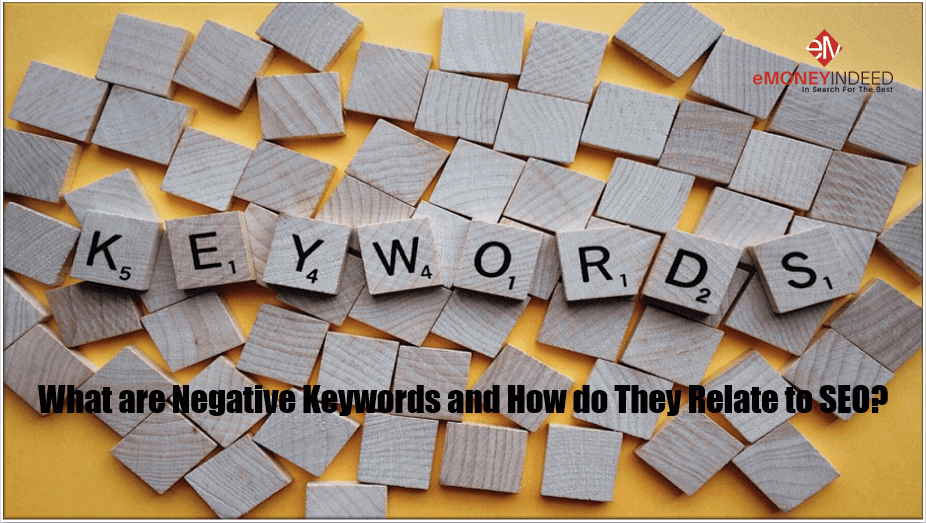Keywords have been at the heart of search engine optimization (SEO) since its inception.
In general, keywords work like this: when a business consistently creates web pages around a certain topic –– say potato chips –– Google and other search engines recognize this fact and, in theory, reflects that fact on search engine results pages (SERP).
This is why Lay’s ranks first on the Google SERP for “potato chips.” Simple enough. (Of course, there are other reasons why Lay’s ranks higher than smaller chip companies for this term, but for our purposes, we’ll be focusing solely on keywords here.)
There is still some confusion, though, around the concept of negative keywords. Here, we seek to clear that up and explain what negative keywords are and how they relate to search engine optimization.
Read – How to Use LSI keywords for Better SEO of Your Blog?
What are Negative Keywords?
Negative keywords are a feature that businesses can use in PPC advertising platforms such as Google Ads. Essentially, designating negative keywords allows marketers to remove certain search terms relating to their ad.
So, for instance, if someone in Florida is searching to “find a testing center near you,” but a testing company doesn’t have a facility in Florida, they can designate terms associated with testing centers in Florida as negative keywords for their ads.
Alternatively, advertisers can also geo-target with their campaigns as well, and in this way remove themselves from SERPs originating in certain areas. As a result, their ads won’t appear for searchers in the Florida area.

Read – Time to Take Notes! The Top Ten SEO Best Practices
Negative Keywords and SEO
All traffic is not necessarily good traffic. Indeed, when businesses create content, they’re looking for a specific type of consumer.
Unfortunately, certain search terms might seem to apply to a business, but actually don’t. Let’s return to the example of potato chips again.
A company like Lay’s ranks highly for the broad term, “potato chips” but not for the more nuanced keyword “how to make potato chips.” Why? It’s because they’ve tailored their content to avoid this long-tail keyword.
In short, businesses are unable to designate negative keywords in regard to SEO. So, Lay’s can’t directly remove themselves for searches about potato salad or french fries if they have web pages relating to those topics.
They can, though, ensure that they don’t attract organic searchers looking for those terms by carefully crafting their on-site SEO and meta descriptions.
By taking time to make sure that all of a company’s content relates only to products or services that they offer, business leaders can prevent unqualified leads from finding their site and, potentially, wasting valuable time.
Final Thoughts on Negative Keywords
Many businesses use a combination of paid advertisements and SEO strategies to market themselves online.
Given that fact, it’s important for SEO professionals to understand the concept of negative keywords on Google Ads –– even if there’s no like-for-like comparison with SEO.
At the end of the day, eliminating unqualified leads from a sales process will likely result in higher conversion rates and enhanced company efficiency.

 eMoneyIndeed Make Money Online
eMoneyIndeed Make Money Online










